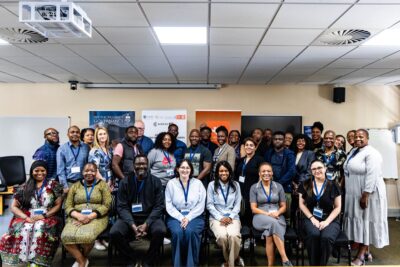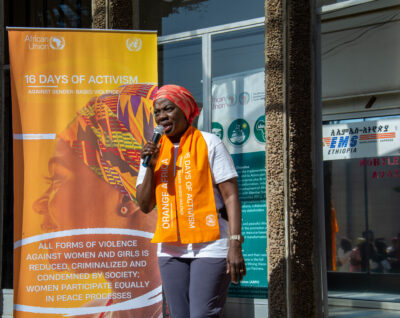In 2008 or 2009, at an early stage of an extensive research program on criminal defense lawyers in China, I was asked a surprising question. Fu Hualing, an academic authority on China’s rights advocacy and defense lawyers, asked: Did I know that a disproportionate number of China’s leading rights lawyers were Christians? He guessed about 40 percent. This puzzled me. With my colleague Sida Liu, I was in the midst of collecting many kinds of data across China on lawyers’ struggles for political liberalism. Since this topic was delicate for the government of China, where the Chinese Communist Party dominated the state and society, we had judiciously construed our sociolegal research as a study on criminal procedure law and practice. Religion was not part of our research design, nor had it noticeably appeared in the research itself.
Then again, I should not have been so taken aback. For the preceding decade, I had been working collaboratively with country specialists on a project on lawyers and the rise of political liberalism across the world since the eighteenth century. We found that in many times and places, including Northeast Asia, lawyers fought for basic legal freedoms, a vibrant civil society, and a state that moderated arbitrary executive power. In many instances, from Europe to South America, from Africa to Asia, scholars unearthed historical moments when lawyers’ struggles were intertwined with Christianity, sometimes with their own Christian religious beliefs, and at other times through alliances between lawyers and Christian churches in a wider political struggle. In effect, Fu Hualing’s question presented us with a putatively comparable empirical phenomenon in China.
Through networks of my lawyer contacts in Beijing, I began to compile a list of twenty to thirty Beijing lawyers whom others identified as Christians. I interviewed most of them, but my deeper research findings draw on a small core of lawyers with whom I met repeatedly over several years. Our wider research had already been delving into the careers and work of defense and rights lawyers, the harms suffered by the populations they represented, their legal cases, their motivations and beliefs, the dangers and costs of their representation, where they got their courage to represent clients on sensitive cases, and, not least, their hopes and aspirations for law, society, and politics in a reformed China.
But who were these Christian lawyers? What was it about lawyers’ Christian beliefs, commitments, or participation that might explain their recruitment to the front lines of rights activism? What, if anything, had their religious dispositions to do with China’s politics and state? And how did the Party-state react to the increasingly vocal presence of these lawyers in China’s rights struggles?
Why the Christian lawyers matter
Through lengthy discussions about their faith journeys and their beliefs, I discovered that a powerful motivation for the practices of these Christian rights lawyers grew directly out of their theological beliefs, which reinforced and extended their jurisprudential and political commitments. They did not see themselves primarily as advocates for religious freedom, expressly articulated in those terms, but rather as lawyers striving for freedoms of speech and association, which encompassed religious expression. Many of their rights cases did involve churches and Christian believers who had been charged with offenses relating to their efforts to worship or evangelize. The Christian lawyers’ struggles took place in local courts and through advocacy for basic legal rights. But they conceived of their defense of Christian clients more within wider frames of core legal rights, an open civil society, and a polity that would permit freedom of religious worship.
Where were they situated in the vast tapestry of China’s living religions against the backdrop of official atheism? On its face, Article 36 of China’s constitution protects religious belief, but in fact the country’s five official religions (Buddhism, Daoism, Protestantism, Catholicism, and Islam), whose institutions are controlled by the Party, exist at the Party’s pleasure and their activities are strictly controlled. Almost all of China’s Protestant Christian rights lawyers belong to the vast patchwork of “unofficial” churches, which range from tiny gatherings often described as “house churches” to churches with several hundred members, until recent crackdowns, in major centers such as Beijing and Chengdu. Unofficial religious gatherings exist often with the tacit collusion of local Party officials, but conflicts can break out over worship, proselytization, church leadership and finances, “subversive” preaching and teaching not acceptable to authorities, and even implicit rivalries between the church and the Party in delivery of social services.
Christians wanted to be able to worship freely, to enjoy the fellowship of other believers, to engage in service activities such as setting up schools, orphanages, and health and welfare facilities, and of course to share what Christians have historically considered the “good news” of their faith. Repeatedly, the Christian lawyers emphasized that their struggle was not for Christians only but for all faiths in China. Whether Muslims or Buddhists, religious freedom was essential not only for reasons of faith, but for the very constitution of China’s political society.
And, politically, I came to understand that for the Communist Party–dominated state, these tiny numbers of Christian lawyers did matter for two major reasons. First, not only did China’s Party leaders consider Christians to have been subversive of Communist and authoritarian regimes in other places, not least in Poland and Eastern Europe’s wider Color Revolution, but Christian lawyers were among the most vocal spokespersons for the approximately one hundred million Christians in official and unofficial churches, China’s largest concentration of civil society organizations. And second, many Christian lawyers and unofficial church leaders had forged strong ties to international co-religionists, Christian rights organizations, lawyers’ associations, and sympathetic governments. With high profiles in the international media, they were shaping international public opinion and foreign relations in their meetings at the White House and in the European Parliament, and through their coverage by the US Congress, among others.
Positioned in a kind of fulcrum between domestic and international forces, the Christian rights lawyers were a clear and present danger to an increasingly repressive Communist Party.
What were these beliefs, subversive of one kind of state while actively imagining a politically liberal state where basic legal freedoms would be protected, civil society would be open and vibrant, and rulers would be held accountable to law and society?
Undermining the ideology of the Party-state
For all Christian rights activists I interviewed, freedom of religion allows alternative systems of belief to the underlying ideology of the Chinese Communist Party and its ultimate control over China’s state. Said a Christian rights lawyer:
The reason for religious freedom is that you don’t need to believe in Communism . . . . People can choose another religion than Communism and they believe their beliefs are a lot better than Communism. The result of course is that this endangers the foundations of Communist control and thus is a great threat.
Thus, not only was defending the rights of savagely repressed quasi-religious groups, such as Falun Gong, said to be a true test of representation by a China rights’ lawyer, but such defenses advanced the cause of an entirely new society. Such a transformed society, where religion was free to thrive, might be the point of a spear that pierced the authoritarian, now quasi-totalitarian, pretensions of China’s one-party state.
From the self to civil society
A leading Christian human rights lawyer proposed that religion for Christians contributes to a citizen-self essential to a viable civil society:
God lives in every Christian’s heart . . . . Every Christian is an independent person, this helps with individual self-discipline. The autonomy of the self, where individuals have the freedom of confidence to think and believe, is a precondition of civil society.
While he extrapolates from Christian doctrine, in fact the point can be widened to all religious beliefs supportive of the “autonomous self.” Even further, he proposed, Christian beliefs—and by implication other religious beliefs and practices—reach out to community. Said another: “The government wants every Chinese person to be isolated. The typical Chinese person is isolated. Christian faith gives the opportunity for community and ties.”
Religious communities in turn foster voluntarism. Lawyers asserted that the state should not and cannot maintain a monopoly over solutions to all social problems. Religious practices expand the space for autonomous institutions that open a wide vista of possibilities to voluntary associations. A much-persecuted Christian lawyer stated that churches offer vastly more expansive opportunities for citizens to come together and make a difference when confronted with such deep grievances as pollution and HIV-AIDS. Later, in response to the devastating Sichuan earthquake and its great loss of life—most tragically of young children in poorly constructed school buildings—a murmuring undercurrent of public commentary highlighted the outpouring of emergency responses by churches and secular civil society organizations to implicitly impugn government incompetence, thereby magnifying fears within China’s Party-state that civil society showed itself better able than the government to deliver empathically and effectively.
Toward a new politics
A Christian lawyer expressed well a wider underlying sentiment that links participation in voluntary associations to an apprenticeship for democracy: “Churches are good places for Christians to exercise their management skills. Churches have good principles of managing social skills and these principles could be applied to society.” That is to say, the church can be a microcosm of a political society. Church members obtain experience in self-government, a prerequisite for democracy, thereby developing the essential skills needed for citizens to shape society and to hold the state accountable.
Ultimately, for Christian and non-Christian lawyers alike, struggles for the right to practice religion openly can bring about wider political and legal transformations. Here, Christian lawyers had common cause with other activists as they coupled freedom of religion with freedom of speech. Said a Christian lawyer: “Right now I am interested in religious freedom and freedom of speech. China will not change at all if China does not grant religious freedom and freedom of speech.” Concurring, an internationally renowned rights lawyer insisted that religious freedom was critical for a constitutional society, indeed “fundamental to a rule-of-law.” In sum, non-Christian lawyers, impelled by juridical and political ideals of law and constitutionalism, were joined by their Christian compatriots, who were also impelled by faith, to insist on a cluster of conditions—freedoms of association, religion, and speech—to fuel a vibrant voluntarism in an open civil society as a necessary condition for a transformed society and politics in China.
An unprecedented nationwide crackdown on more than three hundred rights lawyers occurred in the hours of darkness on July 9, 2015. In the immediate aftermath, almost all the Christian and other rights lawyers I knew suffered detention, disappearances, torture, and prison sentences. They lost their livelihoods, and to this day experience unrelenting surveillance and are subject to travel restrictions within China or leaving China. Although almost all lawyers in the ensuing years have been released, filaments of repression continue and in some cases intensify as religious crackdowns deepen.
In these darker times, what now for the Christian rights lawyers? Some may pull back completely, mute their voices, become quiescent. Others, however, understand their persecution as a moment that reprises other such moments since the Communist Party seized power in 1949. They have their heroes of faith from within China and an awareness of a history of persecution, even martyrdom, in the long Christian tradition elsewhere. They retain hope that whether in the short or long term, they or their successors will live in and fortify a society with strong freedoms of speech, association, and religion, creating a society that respects constitutionalism and the rule of law in a state where arbitrary executive power is tempered by legal and civil society restraint.













